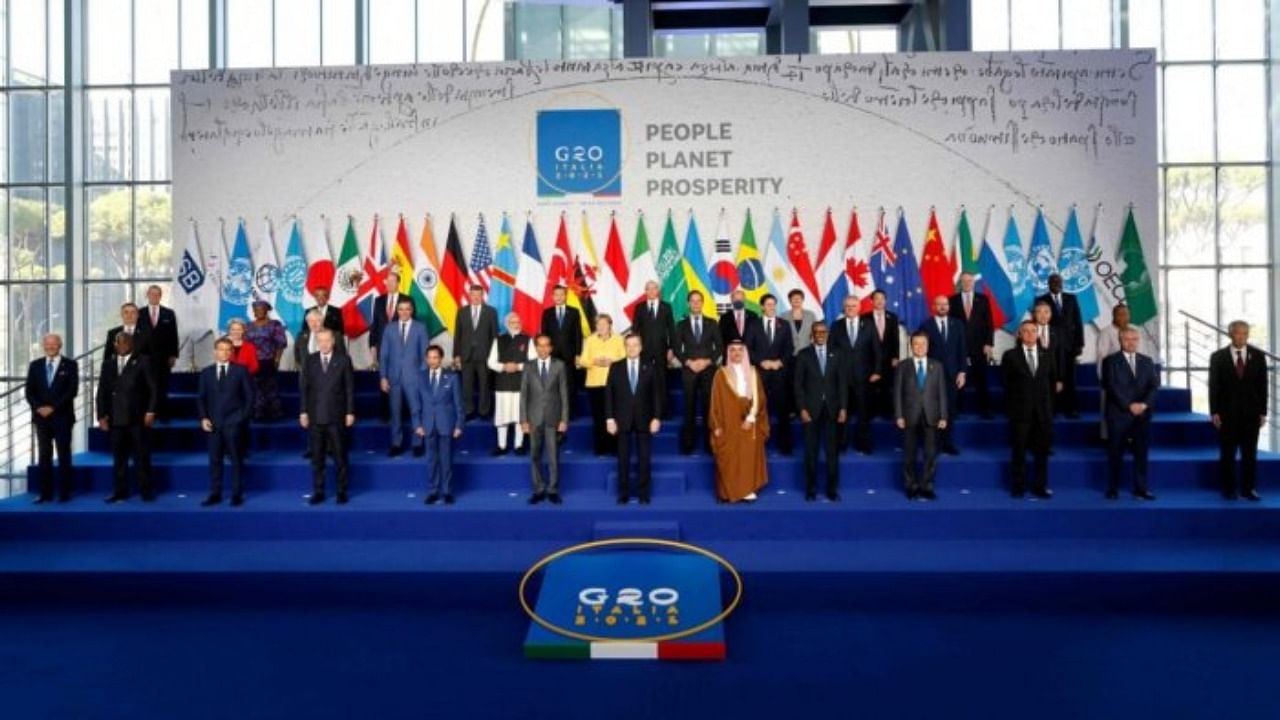
The opposition by Pakistan and its ally China to India’s plan to hold next year’s meeting of G-20 leaders in Jammu and Kashmir has created a difficult situation as participation or non-participation by member countries could have diplomatic consequences.
Jammu and Kashmir will be hosting the 2023 meetings of G20, an influential grouping that brings together the world's major economies, with the union territory administration last Thursday setting up a five-member high-level committee for overall coordination.
However, Islamabad not only raised objections over New Delhi’s decision, but reportedly also reached out to its close allies in the Group - China, Turkey and Saudi Arabia - to boycott the meeting.
China on Thursday echoed Pakistan's objection and voiced its opposition to India’s plans to hold the G-20 leaders meet in Jammu and Kashmir. According to Pakistani newspaper The Express Tribune, Islamabad would also speak to the US, the UK and other G20 members in order to counter Indian plans.
On the other hand, India which is set to assume the presidency of the G20 in December this year has already started the preparations to hold the grand summit in the UT. Already several CEOs from Gulf countries have visited Kashmir in recent months to explore the investment opportunities in the UT much to the annoyance of Pakistan.
During the international summit (in UAE) last year, there was lot of interest with regard to Jammu and Kashmir. Encouraged by international business houses showing keen interest to invest in Jammu and Kashmir, New Delhi planned to hold the G-20 summit in the UT next year.
Also Read: Bengaluru to host nine G20 meetings: Bommai
If G-20 summit goes ahead as per the plan, it will be for the first time that a major international summit is held in Jammu and Kashmir which has opened for business and investment from outsiders after the abrogation of the erstwhile state’s special status under Article 370 in August 2019.
“By choosing Jammu and Kashmir as the venue for G20 summit, New Delhi has sent a clear and loud message to Pakistan that its claim on Himalayan region has no locus standi at the international level. If the summit goes ahead, it will be a major diplomatic victory for New Delhi and a setback to Islamabad,” a senior officer told DH.
As Pakistan is not a part of the G20 group, it will be difficult for Islamabad to convince other powerful countries to scuttle the move to hold the summit in Jammu and Kashmir,” he added.
The G20 is composed of most of the world's largest economies, including both industrialized and developing nations, and accounts for around 90 per cent of gross world product (GWP), 75–80 per cent of international trade, two-thirds of the global population, and roughly half the world's land area. Founded in 1999 in response to several world economic crises, the influential grouping has convened one summit at least once a year since 2008.